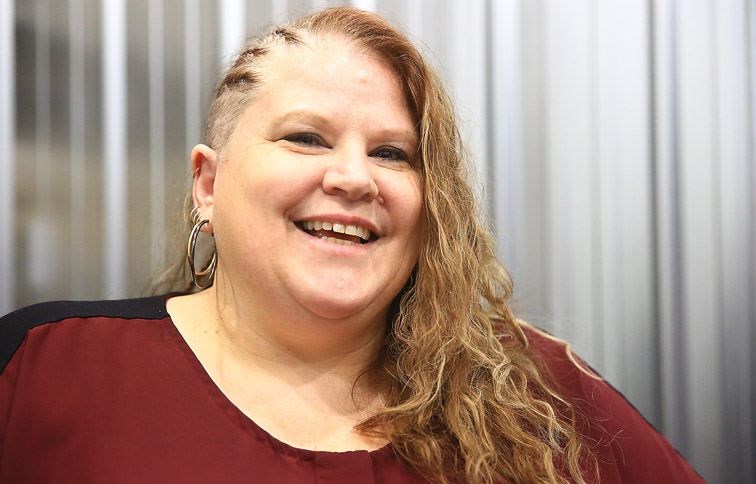"I don' t expect to change everybody's lives but if just one person doesn't shoot themselves in the face because I helped them then that's made my life pretty freakin' special," Kia Johnsen, an amputee peer support person, said.
Johnsen had her leg amputated in May 2013 because chronic pain of repeated injury was so severe she simply couldn't function any more.
"When I had my leg amputated there were no support resources," Johnsen said. "I did all the research and I thought I was ready but nothing prepared me for the reality of it."
At one point during the process she felt so low she believed life was not worth living.
"And no one should think that," Johnsen said. "We don't want that for anyone or their families. That was my saving grace - my kids. I couldn't leave them because I'd miss too much. I want to see my grandbabies."
And from having been at that low point comes the willingness to help other amputees.
"That's why I do what I do," Johnsen said. "And so I talk to a lot of people - and actually, I shouldn't say that - I don't do a lot of talking - I do a lot of listening. I do say 'only you can help yourself'. So tell me what you want - resources or you want to know how to help yourself - I'll be there - whenever - I don't care when it is - when you decide, you call me."
Johnsen said she had suffered a long time before she made the ultimate decision to have the amputation above the knee. She'd been using crutches for years and then six years before the surgery she was confined to a wheelchair.
"After the gamut of nerve blockers, anti-imflammatories, narcotics, opioids, alcohol - I kinda did the whole spread and then I just quit all of it because I knew I was going to end up dead and my kids were just teenagers then and I couldn't work any more," Johnsen said.
She had quit taking any medication a year before the amputation so the pain quotient was high.
"When I woke up from the surgery I didn't have that pain any more," Johnsen said.
Complications arise that make it very difficult to use prosthetics, so most mature women who get amputations find using a wheelchair much easier, Johnsen explained.
She was told that women of a certain age just didn't wear prosthetics.
"And I said watch me," Johnsen laughed.
When she tried to use the traditional prosthetic she experienced skin break down that resulted in open wounds that took weeks to heal and that happened repeatedly. Johnsen decided to go to another option called osseointegration surgery, which permanently anchors an artificial limb to the human skeleton. In a surgical procedure a metal (titanium) implant is inserted into the bone. The implant penetrates through the skin. The artificial limb is easily attached to this implant with a connector. Johnsen had the procedure done in Australia.
During this whole process Johnsen sought out support for amputees and found some Facebook pages but none of them seemed to offer enough information on how to navigate as a new amputee. She found Ontario and Quebec have huge peer support systems in place including in-person meetings and group activities.
She decided there had to be something more on a local level.
Johnsen took training in Nanaimo to become certified as an amputee peer support person through the Amputee Coalition of Canada. She is also the Amputee Coalition of Canada regional manager at Northern Health Authority and works at the Carrier Sekani Youth Services.
"We as adult amputees do so much better emotionally and physically when we meet others like us," Johnsen said. "Often this doesn't just happen naturally, more often than not we feel secluded and alone and I don't want that for anyone."
For support and information about how to access resources call Johnsen at 250-569-7161.



